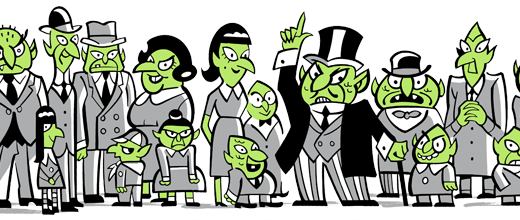Is the GOP War on Democracy Self-Defeating?
Why Republicans might prefer to lose with a smaller electorate over winning with a bigger one
Eric Levitz has a typically smart piece in New York arguing that the current Republican efforts to make voting harder are actually bad for the party because it has been making gains among low propensity voters who will be disenfranchised by such measures. Levitz zeros in on Texas to make his case:
The Texas GOP’s war on democracy is one of choice, not necessity. The party just demonstrated its capacity to dominate a high-turnout election. Republicans do face some demographic headwinds in Texas, with the state’s Hispanic population set to become a plurality in the coming years; the specter of Californication haunts Lone Star State reactionaries. And yet, in the 2020 election, the party made its biggest gains with Hispanic Texans. Between 2016 and last November, the Democratic presidential nominee’s vote share went up in Texas’s most urban, suburban, and rural counties; it was the state’s heavily Hispanic border counties that kept the state solid red, as Joe Biden underperformed Hillary Clinton by 16 points in such areas.
All of which is to say, the notion that Texas Republicans must choose between subverting democracy and allowing demographic change to render their party a permanent minority in the Lone Star State is a paranoid fantasy.
I recommend reading Levitz’s careful analysis, and I have some history to add that might illuminate why a right-wing political party might choose to shrink the electorate—even if it could secure a win by appealing to non-traditionally right-wing voters, such as Hispanics.
Even back in the 1980s, you could see the Reagan coalition cleaving into two different approaches towards people of color. On the one side, Jack Kemp, the onetime football player and congressman who oversaw housing and urban development in Reagan’s cabinet, made the pitch for a kind of multicultural conservatism. Kemp’s big shtick was building enterprise zones in cities, which would supposedly turn them into thriving economic meccas and win Black voters to the GOP. As a public policy it was dubious, but there was something admirable about Kemp’s desire to build a multi-racial, right-of-center party.
Kemp’s expansive and welcoming approach seemed plausible enough in the 1980s, when Reagan did in fact have a governing majority. But even at the time, an opposing faction inside the GOP (constituted by paleo-conservatives like Pat Buchanan and Sam Francis) regarded Kemp’s vision as a nightmare. They saw the GOP as the stalwart defender of white interests. Any watering down of the coalition would make the party less attractive to that core white base and less effective in serving the interests of white Americans.
The attacks on Kemp were usually coded in cultural and moral terms. Speaking about Steve Forbes, a Kemp-like optimist, Pat Buchanan in 1996 said, "It's big rock candy mountain conservatism. They think economics is the answer to everything. You've got violence in the cities: Cut taxes and put enterprise zones in there and everything's going to be fine, and it's not. There's a much broader dimension to America's crises: It's moral, it's social, it's economic, it's spiritual."
If you believe that the purpose of politics is, at core, to preserve a white American identity that you perceive to be under threat (from moral, social and spiritual enemies), then simply electing Republicans with the help of more non-white voters isn’t something you’re interested in. A broader Republican party will, from this point of view, be less loyal to the historical America, the white-dominated America, that the political right wants to defend. If that is your starting point, then shrinking the electorate is in fact the only way to go. A multicultural Republican party would be a defeat.
As Buchanan understood, politics isn’t just about policies. It’s also about mood. Kemp’s sunny, up-beat conservatism didn’t appeal to people whose worldview has a darker, more pessimistic bent, people for whom America’s changing demographics represent not opportunity but the end of their way of life. Can anyone deny that Buchanan’s somber outlook is more popular on the right than Kemp’s cheerfulness? Who, now, even remembers Jack Kemp?
(Edited by Emily Keeler).
Share and Subscribe
If you enjoyed this post, please consider sharing:
Or Subscribing:




There is a simpler explanation for why the Rs prefer a white party. They can't recruit new elements without losing their base. There are plenty of socially conservative PoC, and Nixon showed that the Republicans could redefine any non-black PoC as white. But building such a coalition would drive out their racist base. The racists (and allies among the snake chunkers) are low-propensity voters. Without constant doses of outrage against dusky folk, the base won't get to the polls. The party could try to amp up the outrage against the (((elites))), but that's already pretty close to the breaking point.
Well, I remember Jack Kemp. Bruce Bartlett remembers Jack Kemp...